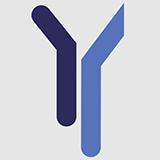Detailed introduction of Rhine-Waal University of Applied Sciences:
Introduction and Overview
School size: The school has developed rapidly, reaching and exceeding the initial enrollment target of 6,400 students in just six years. It currently offers 25 undergraduate and 11 graduate degree programs.
Geographic location: Located in Kleve and Kamp-Lintfort in North Rhine-Westphalia, Germany. Kleve is an agricultural product distribution center with 12th-century castles and monasteries. Kamp-Lintfort is located about 13 kilometers northeast of Würz and on the Kleve River. The two cities have beautiful natural scenery and are close to the central urban area of the Rhine region. They are close to the Netherlands and have convenient transportation, providing students with a good learning and living environment.
History and establishment time
Rhine-Waal University of Applied Sciences was founded on May 1, 2009 Day.
School Strength
Faculty: Most professors and lecturers are young and accomplished researchers who are easy to approach and like to work closely with students to help them realize their potential, so as to help them meet the actual requirements of the domestic and international job markets and stand out in their new careers.
Teaching Mode: As a university of applied sciences, its degree programs focus on practical applications and real-world relevance. In all degree programs, students will learn important basic knowledge of business economics and law, and have plenty of opportunities to develop interpersonal soft skills, such as presentation and communication skills, project management skills, social and cross-cultural skills, and conflict management strategies.
Scientific Research: The school maintains many cooperative links with private enterprises in various fields, such as chemistry, energy, materials science, mechanical engineering, electrical engineering, IT, logistics, life sciences, agricultural sciences and biotechnology, providing rich cooperative resources for students' projects, internships or bachelor's and master's theses.
Institutional Nature
The school is a public university of applied sciences.
Educational Philosophy
Emphasizing internationalization, interdisciplinary and practical applications, focusing on cultivating students' soft skills and comprehensive qualities, and is committed to cultivating students who can meet The university aims to produce graduates who meet the needs of the domestic and international job markets and enable them to succeed in their careers. At the same time, it encourages students to actively participate in international exchanges and cooperation and promote the integration and development of multiple cultures.
Key disciplines and departments
Key disciplines: It has a high level of teaching in the fields of life sciences, social economics, communication engineering and environmental protection. It also has distinctive majors such as technology and bionics, mechatronics, international business and social sciences, international taxation, biology and health care, agricultural sciences, media and art design, logistics, environment and energy.
Department settings: The school has the Department of Technology and Bionics, the Department of Life Sciences, the Department of Social and Economics, and the Department of Communication and Environment, covering a wide range of disciplines from natural sciences, economics, engineering technology to humanities, social and health sciences.
Ranking
The school has no clear international comprehensive ranking, but it has a certain reputation and influence among the universities of applied sciences in Germany. Its international teaching model and close cooperation with enterprises have attracted widespread attention.
Expenses
Tuition fees: German public universities usually waive tuition fees for domestic students and EU students, but they need to pay a small semester fee for the use of school facilities and transportation tickets, which is about 300 euros per semester. For non-EU students, the average tuition fee per semester for undergraduate courses is around 1,500 EUR, while for master's courses it can be up to around 3,000 EUR.
Other expenses: Students need to spend about 300-500 euros per year on books and study materials, accommodation costs about 300-500 euros per month, and health insurance costs about 90 euros per month.
Campus
Campus environment: The school's two campuses in Kleve and Cham-Lintfort are both beautiful and well-equipped. There are libraries, language centers, research centers, administrative offices, canteens, student apartments, etc. on campus, which provide convenient conditions for students' study and life.
Campus culture: The school's students come from all over the world. More than 75% of degree courses are taught in English. The degree of internationalization is high. There are rich cross-cultural exchange activities on campus every day. Students can also participate in dozens of sports clubs and leisure activities for free. In addition, there are many leisure places in the cities of Kleve and Cham-Lintfort around the school. Nearby big cities such as Nijmegen, Cologne, Düsseldorf, Duisburg and Oberhausen also provide students with more entertainment options.
-

Heidelberg University
-

University of Freiburg
-

University of Jena
-

University of Marburg
-

University of Rostock
-

University of Bayreuth
-

University of Halle-Wittenberg
-

Leipzig University
-

University of Tübingen
-

Humboldt University of Berlin
-

Mesoamerican University
-

Istmo University
-

Mariano Galvez University of Guatemala
-

Regional University of Guatemala
-

Galileo University
-

Francisco Marroquín University
-

Rafael Landívar University
-

University of the Valley of Guatemala
-

University of San Carlos of Guatemala
-

Technological Institute of Tlaxcala Plateau
-

Golfo University
-

Technological University of South Sonora
-

Technological University of Huejotzingo
-

Tizimín Institute of Technology
-

Chilpancingo Institute of Technology

